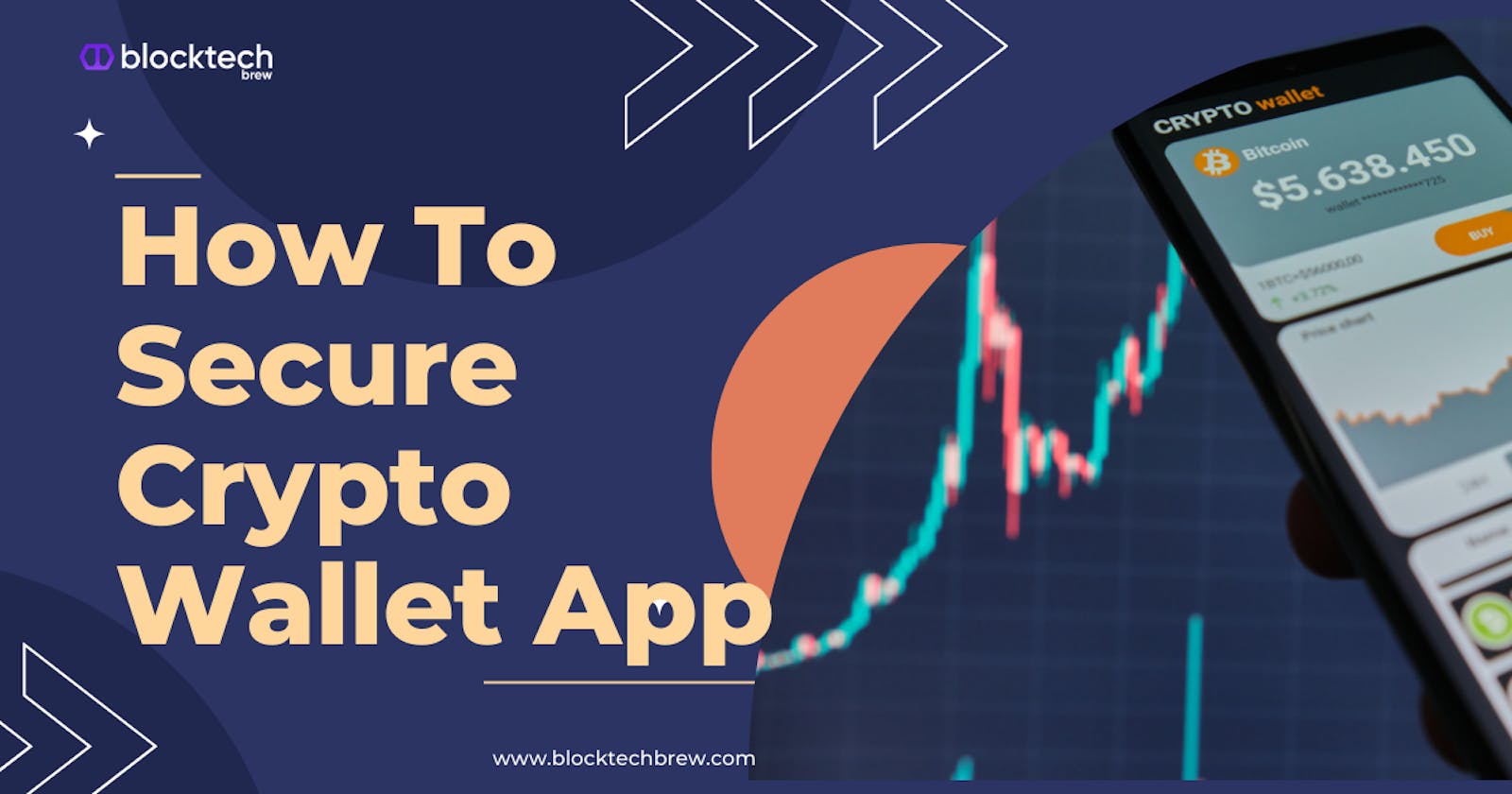Cryptocurrency wallets, like social media accounts and file storage systems, are security risks. They are transforming the traditional banking system by storing information on hard drives, laptop computers, and mobile phones. As a result, it is critical to put in place strong safeguards to protect wallet owners' digital assets as well as their transactions. This blog delves into the critical security mechanisms that businesses should consider before developing a cryptocurrency wallet.
Two-factor authentication
Two-factor authentication, also known as 2FA, entails receiving a text code on one's phone or using a thumbprint to verify the user's identity. It is an extra layer of security that ensures only authorized individuals can access the wallet.
Even if an unauthorized person successfully cracks the password, they must still bypass the second-tier authentication. To access the wallet, the user usually enters a code sent to their phone into a sign-in field.
Multi-sign or single-use?
A single-key address typically grants access to all funds to whoever has the corresponding private key. This means that the user only needs a single key to sign transactions, and no other parties' permission is required. Although managing a single-key address is more efficient than managing a multi-sig address, it poses some security risks. Having a single point of failure to safeguard the funds creates a single point of failure, making it a prime target for cybercriminals who are constantly developing new phishing techniques to gain unauthorized access.
Furthermore, for medium to large businesses that rely on cryptocurrencies, a single-key address is not an appropriate option. For example, if a business stores funds on a standard address with a single corresponding private key, the private key must be entrusted to a single individual or assigned to multiple entities.
Multi-sig wallets, on the other hand, offer a solution to both problems. A user can only transfer funds using a multi-sig address after obtaining multiple signatures from designated entities.
Wallet encryption
It is strongly advised to add an extra layer of security by encrypting the wallet with security measures such as AES-256-CBC and securing it with a passphrase. This method guard against unauthorized access to the wallet. If attackers gain access to the wallet's device, they will be unable to perform any actions unless they have access to the passphrase.
However, due to certain drawbacks, some cryptocurrency wallet developers choose not to use this method. Encryption and decryption for each transaction can significantly increase processing time, resulting in higher costs and service interruptions.
DDoS Attacks
A Distributed Denial-of-Service (DDoS) attack is a method used by hackers to prevent legitimate users from accessing a target network or web resource by flooding it with traffic or disseminating malicious requests. Cryptocurrency exchanges and wallets have become increasingly popular targets for DDoS attacks, necessitating the implementation of DDoS mitigation systems such as anti-DDoS hardware and software modules by crypto wallet development companies.
Load balancers, network firewalls, or specialized web applications can prevent malicious access requests and sudden surges in traffic, effectively preventing DDoS attacks.
Security Alerts
Cryptocurrency wallet providers can configure multiple alerts for withdrawals and deposits from a wallet to ensure that no important information is missed. These alerts can include the following:
Notification for the first deposit to a new wallet.
Notification for the first withdrawal from a new wallet.
Notification for any withdrawal that deviates by a certain percentage from the previous withdrawals.
Notification for any withdrawal of the same value from the same wallet for a certain number of consecutive days.
Notification for any withdrawal from a new IP device.
Notification for any mobile number change request before a withdrawal.
Notification for any password change request before a withdrawal.
Notification for any second withdrawal for the day.
In addition to these, wallet providers can configure other necessary triggers based on their specific business requirements. These alerts help to monitor the wallet and detect any suspicious activity, allowing for quick action to be taken to prevent potential fraud or theft.
Phishing Attacks
Yes, that's right. Anti-phishing software can assist in the protection of cryptocurrency wallets from phishing attacks by detecting and blocking any phishing content that may be used to access wallet data. This software typically works by analysing website URLs, emails, and other online content to identify potential phishing attacks and then alerting or blocking users from accessing those sites.
It can also display the true domain name of the website that a user is visiting, which can aid in the detection of fraudulent websites masquerading as legitimate ones. Crypto wallet users can reduce the risk of their private and public keys being stolen through phishing attacks by using anti-phishing software.
Notification of Critical Activities
Yes, turning on notifications for critical activities like logins, transactions, trades, and profile and KYC status updates is a critical security measure for cryptocurrency wallets. This enables network administrators to monitor wallet activity in real-time and identify any suspicious or fraudulent behaviour.
This is especially important for multi-signature wallets, where multiple parties manage the wallet and any unauthorised activity can have serious consequences. Network administrators can quickly respond to any suspicious activity and take appropriate action to secure the wallet by enabling notifications.
Concluding Thoughts
I am not affiliated with any company, including blockchain development firms, as an AI language model. However, if you are interested in investigating cryptocurrency wallet development services that include security mechanisms, I recommend conducting research on various blockchain development companies and their offerings. Before making any commitments, it is critical to thoroughly evaluate the company's reputation, experience, and expertise. You can also examine the security measures they use in their cryptocurrency wallets to ensure that they meet your security requirements.
I suggest BlockTech Brew, a top-listed award-winning Cryptocurrency Wallet Development Company in Dubai. With a team of 300+ Blockchain developers, Blocktech Brew has been delivering remarkable Crypto Wallet App Development Services for more than 10 years.
